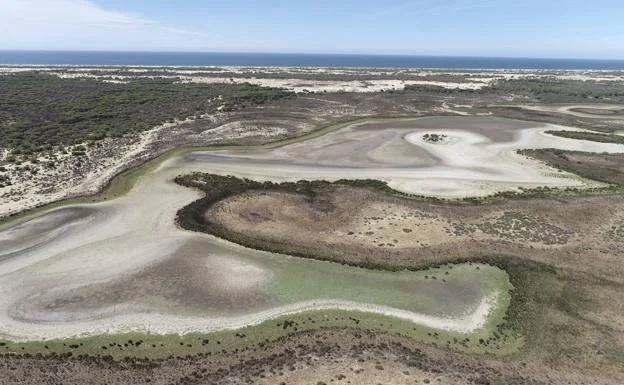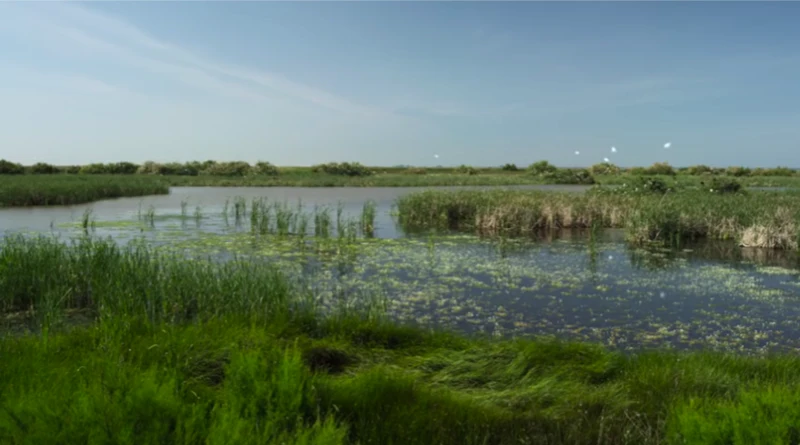Controversy surrounds a new farming bill that could have devastating consequences for the renowned Doñana wetlands in Andalusia, Spain, prompting concern among strawberry enthusiasts.
Scientists from the University of Leeds and the Spanish National Research Council are calling for urgent protection of this fragile ecosystem due to the bill’s authorization of illegal strawberry production in the wetland’s vicinity.
The bill, approved by the regional government without parliamentary debate, permits intensive irrigated strawberry farming on land originally designated for forestry or rain-fed agriculture.
With 80% of the region’s strawberries being exported, and the UK and Germany serving as the primary recipients, consumers may want to examine the origins of their summer fruit.
The Threat to Doñana Wetlands
Doñana is a significant wetland site in Europe, supporting an array of wildlife, including half a million migratory birds, 50 species of waterbirds, and the highly endangered Iberian lynx.
However, extensive research reveals the alarming degradation of vegetation and soils, a reduction of over half in the number of temporary ponds, and a decline in waterbird populations.
Professor Luis Santamaría of the Doñana Biological Station emphasizes that while Doñana’s biodiversity justifies its conservation, the wetlands have suffered relentless degradation over the years, approaching a point of no return.
Rather than implementing decisive actions to protect the wetlands, the current bill represents a regression to outdated and unsustainable policies that will hasten its demise.
Confrontation and Consequences
Spain faced the threat of sanctions due to the bill, marking an unprecedented confrontation between the regional Andalusian government and the European Commission.
The bill not only poses environmental risks but also threatens Spain’s reputation and economy, with major European retailers expressing concerns about the impact of Spanish imports on the environment.
German pressure group Campact has initiated a campaign urging retailers to stop selling so-called “dry strawberries,” highlighting the potential repercussions of the bill on the European market.
More To Discover
- Exposing the Dark Side of Luxury Decks: 75% of Ipê Wood May Be Illegally Harvested
- Jet Fuel from Human Waste: A UK Company’s Sustainable Breakthrough
- The Required Innovations in Food and Agriculture for Climate Resilience and To Feed The Future of The World
- Enviva’s Wood Pellet Plant in Georgia, the World’s Largest, Is Exceeding Pollution Limits According To State

with the depletion of its water resources.
Scientific Evidence and Conservation
Professor Julia Martin-Ortega emphasizes that the bill may undermine the efforts made by legal strawberry producers who have sought to reduce water consumption and the use of agrochemicals in the area.
Simply put, the scientific evidence unequivocally demonstrates the peril faced by Doñana’s ecosystem.
The wetlands are a designated “Knowledge Site” within the WaterLANDS project, an ambitious EU-funded initiative aiming to restore wetland sites across Europe and establish broader protection measures.
Preserving Wetlands for the Long Term
Dr. Shane Mc Guinness, Project Co-Coordinator of WaterLANDS from University College Dublin, stresses the importance of properly valuing wetland areas, as they provide crucial support to biodiversity, water resources, carbon storage, and cultural heritage.
Long-term protection of these ecosystems should always take precedence over short-term economic gains.
With the future of Doñana wetlands hanging in the balance, reactions against the bill are expected to spark renewed conservation policies based on the irrefutable scientific evidence of the imminent danger facing this iconic World Heritage site.



















